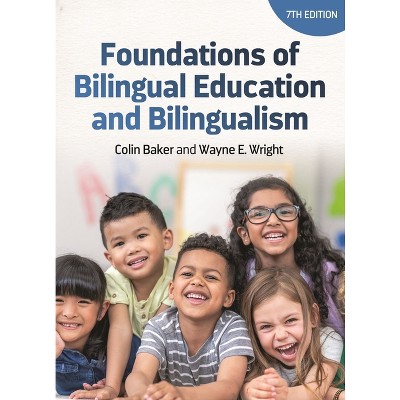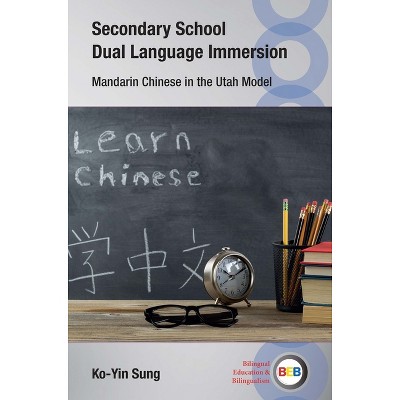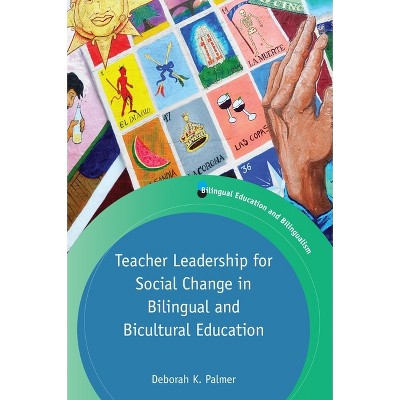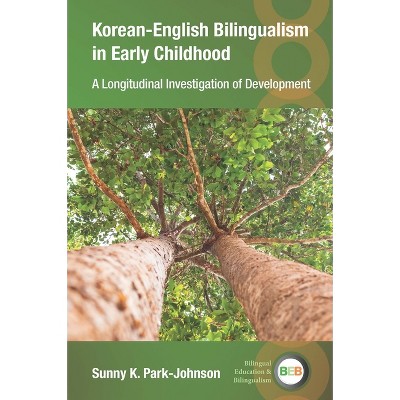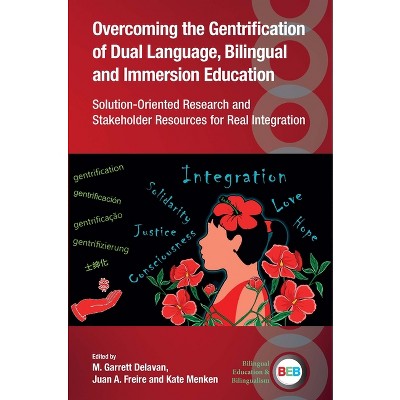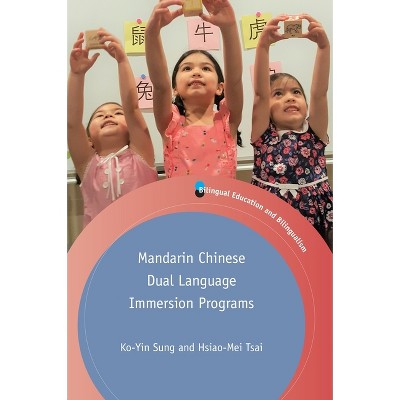(M)Othering Labeled Children - (Bilingual Education & Bilingualism) by María Cioè-Peña (Paperback)

About this item
Highlights
- This book explores the experiences and identities of minoritized Latinx mothers who are raising a child who is labeled as both an emergent bilingual and dis/abled.
- About the Author: María Cioè-Peña is Assistant Professor at Montclair State University, USA.
- 208 Pages
- Language + Art + Disciplines, Language Arts
- Series Name: Bilingual Education & Bilingualism
Description
About the Book
This book explores the experiences and identities of minoritized Latinx mothers who are raising a child who is labeled as both an emergent bilingual and dis/abled. It showcases relationships between families and schools and reveals the ways in which school-based decisions rega...Book Synopsis
This book explores the experiences and identities of minoritized Latinx mothers who are raising a child who is labeled as both an emergent bilingual and dis/abled. It showcases relationships between families and schools and reveals the ways in which school-based decisions regarding disability, language and academic placement impact family dynamics.
Review Quotes
The book will undoubtedly be an asset to researchers, policy makers, and teachers interested in bilingual education, disability studies, and special education. Even so, it remains reader friendly since it is not excessively scientific and theoretical concepts are well explained [...] Cioè-Peña makes the reader feel as though we are with her as she interacts with and interviews the mothers, and their children. This is facilitated using some pictures, plenty of transcripts, and by personal accounts of her relationships with the mothers.
Cioè-Peña's work is situated in both refusal and expansion. She refuses a deficit perspective of mothers rooted in standards and norms of whiteness. The expansion is in her focus on those who have been largely neglected by education research - mothers of emergent bilingual children who were also labeled disabled. Her positioning of these mothers as knowledge generators is an essential contribution to conversations about education, language, disability, and race.
María Cioè-Peña provides a powerful analysis of Latina mothers advocating for their children at the intersection of language, race and disability that challenges deficit perspectives by pointing to the rich cultural and linguistic traditions that they build on as they navigate oppressive systems designed to marginalize them and their children.
This book offers a window into the lives and experiences of ten amazing immigrant women who have gone to great lengths to support their emerging bilingual children diagnosed with dis/abilities. These are voices our education system often ignores or overlooks, yet their testimonios are so powerful! They offer insights that we can leverage for a more just system for all emerging bilingual students, especially for those who have been diagnosed with a dis/ability.
About the Author
María Cioè-Peña is Assistant Professor at Montclair State University, USA. Her research interests are deeply rooted in political economy, raciolinguistic perspectives and critical dis/ability awareness within schools and families, and encompass bilingual children with dis/abilities, their families and their ability to access multilingual and inclusive learning spaces within public schools.






